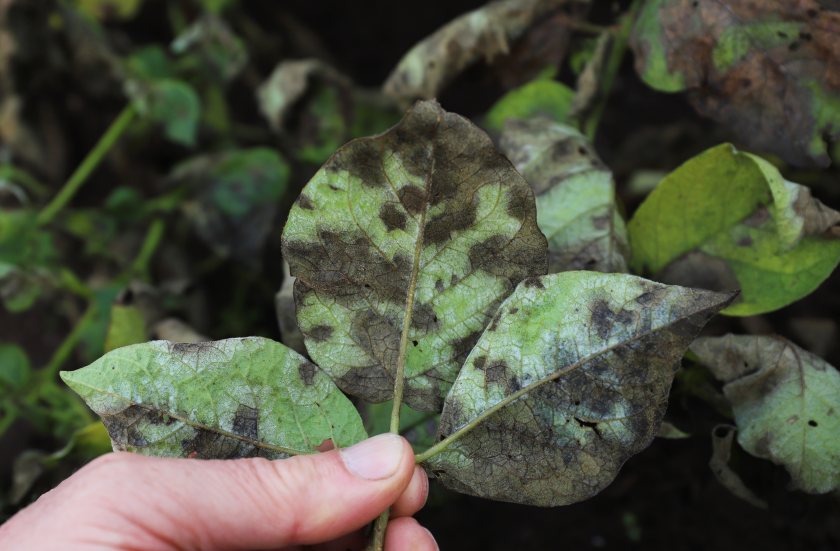
A project aiming to help protect valuable potato crops by alerting growers across the UK to late blight outbreaks has secured funding.
The James Hutton Institute, based in Dundee, has secured funding from a consortium of partners to continue its 'fight against blight' (FAB) project.
The project alerts growers to late blight outbreaks via a website populated by 'FAB scouts' - a network of agronomists and growers who submit field samples from suspected late blight outbreaks around the country.
Blight has already been reported in parts of England due to the cool damp weather experienced in May.
But with conditions looking set for a drier spell, the risks are expected to decline over the coming week.
The 2023 program will include both the annual sampling of late blight outbreaks and the characterisation of pathogen populations.
In work led by Dr Alison Lees from the James Hutton Institute, fungicide sensitivity testing will be carried out once again for active ingredients prioritised by the industry.
Pathogen DNA captured on FTA cards will allow rapid in-season feedback on genotypes to scouts throughout the season.
In combination with an end of season report, researchers say this will ensure the potato sector is kept informed on the best-practice for late blight management.
Project leader Dr David Cooke of the institute said the continuation of FAB was 'great news' for growers and the sector more widely.
“With concerns about resistance to CAA fungicides related to the new genotype EU_43_A1 on the continent last year, the early detection of any new arrivals to GB crops is going to be crucial to building effective IPM programs for 2023 potato crops.”
In another key development, BlightSpy has relaunched at the James Hutton Institute, which provides crucial data on current and forecast weather conditions that are conducive to late blight.
The system maps local blight risk based on Hutton criteria, up to eight days in advance.
